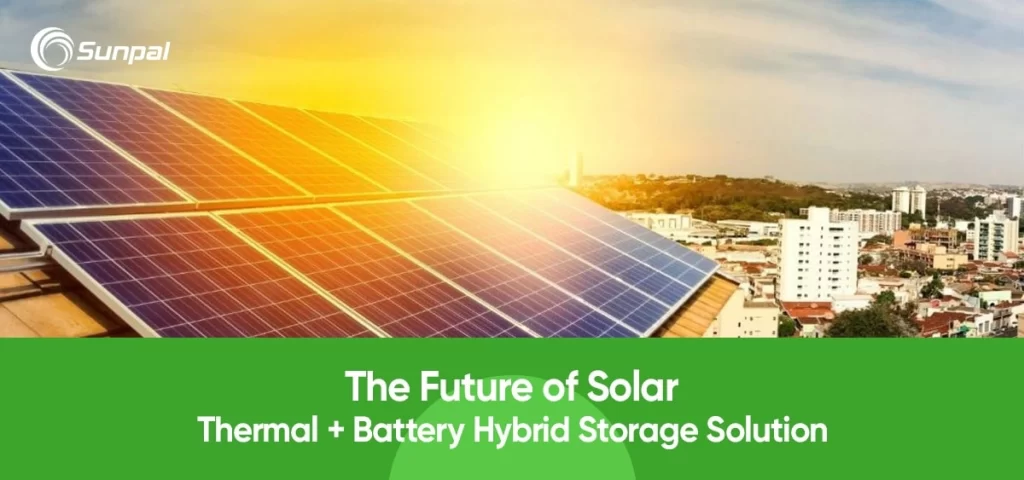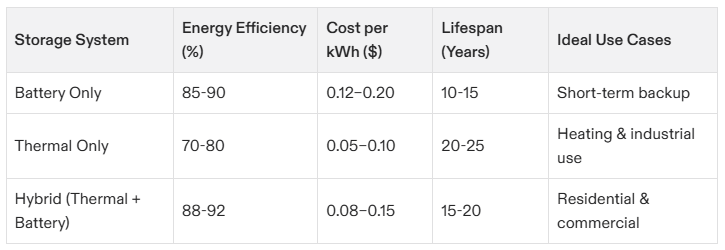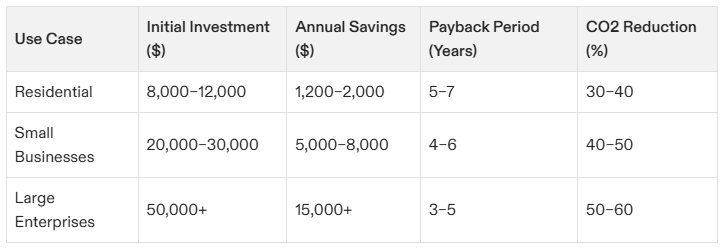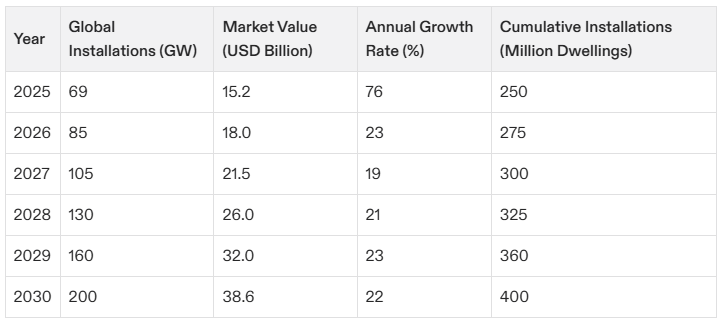
The Hybrid Advantage: Why Combine Thermal and Battery Storage?
Have you ever wondered how “thermal + battery hybrid storage” - the hybrid solar thermal storage system can transform energy efficiency? Hybrid solar thermal storage systems are emerging as the pinnacle of innovation in energy management, offering unparalleled reliability, efficiency, and scalability for both residential and commercial users. This unique combination leverages the strengths of thermal and battery storage technologies, creating a system that not only stores electricity but also captures and utilizes heat energy.
With the rising need for sustainable energy solutions, understanding the potential of hybrid systems is crucial for any business or homeowner looking to maximize energy independence and cost savings.
How Does a Hybrid Solar Thermal Storage System Work?
At its core, a hybrid system integrates الألواح الكهروضوئية (PV)., battery storage, and a thermal storage system. Here's how they interact:
- Solar Energy Collection: PV panels convert sunlight into electricity, powering immediate needs.
- تخزين البطارية: Excess electricity is stored in batteries for use during peak demand.
- Thermal Storage: Heat generated from solar collectors is stored in a thermal tank, providing long-term energy for heating or industrial processes.
This combination balances energy loads, minimizes reliance on the grid, and reduces overall energy costs.
Chart 1: Comparative Efficiency of Hybrid Systems

Practical Applications for Residential and Commercial Markets
The hybrid system's versatility makes it ideal for both homeowners and businesses.
- سكني: Homeowners can use hybrid systems to heat water, power appliances, and store energy for evening use, significantly lowering energy bills.
- تجاري: Businesses, especially in manufacturing, can integrate these systems to power equipment and maintain operations during power outages, ensuring efficiency and sustainability.
Efficiency Calculations: How Much Can You Save?
To understand the potential savings, consider the following example:
A household uses an average of 10 kWh per day. By integrating a hybrid storage system:
- Battery Savings: Avoid peak-time grid charges ($0.15–$0.25 per kWh).
- Thermal Savings: Reduce heating costs by up to 30%, especially in colder climates.
For businesses, the cost savings can scale exponentially based on energy demand.
Chart 2: Projected ROI of Hybrid Storage Systems

Real Case Studies: Success in Latin America
Case Study 1: Residential Use in Brazil
A family in São Paulo installed a hybrid system combining solar thermal collectors with a 10 kWh battery. Results:
- 40% reduction in electricity bills.
- Reliable energy during power outages.
- Heating and electricity needs met seamlessly.
Case Study 2: Commercial Use in Argentina
A textile company in Córdoba integrated hybrid storage into its operations. Outcomes:
- 30% reduction in overall energy costs.
- Thermal storage used for industrial dyeing processes.
- 25% improvement in operational efficiency.
Future Prospects: Why Hybrid Systems Are the Next Big Thing
As solar energy adoption grows, hybrid storage systems are emerging as a game-changer. Their ability to balance efficiency, cost, and sustainability makes them an attractive option for users aiming to maximize solar energy use.
Furthermore, innovations like AI-powered energy management are enhancing hybrid systems' potential. These technologies help optimize when to charge batteries, store heat, or draw from the grid, making hybrid systems smarter and more effective.
Chart 3: Forecasted Growth of Hybrid Storage Systems (2025-2030)

FAQs: Hybrid Solar Thermal Storage Systems
1.How does a hybrid solar thermal storage system differ from traditional solar systems?
Traditional solar systems typically rely solely on PV panels to generate electricity, with any excess often fed back into the grid. In contrast, hybrid systems incorporate both thermal and battery storage, allowing for the capture and utilization of heat energy and the storage of excess electricity. This dual approach enhances energy efficiency and provides greater flexibility in energy usage.
2. How does a hybrid system improve energy efficiency?
Hybrid systems reduce the reliance on battery storage for heat-based applications by utilizing thermal storage. This division of energy use increases overall system efficiency, extends battery lifespan, and reduces replacement costs.
3. What components are essential in a hybrid solar thermal storage system?
A typical system includes:
- Solar Panels (PV Panels): To convert sunlight into electricity.
- Thermal Collectors: To capture and store heat energy.
- تخزين البطارية: To store excess electricity for later use.
- العاكسات: To convert the generated DC electricity into AC for home or business use.
- Control Systems: To manage the distribution and storage of energy.
4. Are hybrid systems suitable for both residential and commercial use?
Yes, hybrid systems are highly adaptable and can be scaled to meet the energy needs of residential homes, commercial buildings, and industrial facilities. They offer significant cost savings and energy independence for all users.
5. Can hybrid systems be used in areas with limited sunlight?
Yes, hybrid systems are versatile and can store energy effectively, even in regions with less sunlight. Thermal storage ensures heat energy is available, while batteries store excess electricity for later use, providing consistent energy supply.
6. What are the growth prospects for hybrid storage systems?
The market for hybrid storage systems is expected to grow rapidly. By 2030, global installations are forecasted to reach 200 GW, with a market value of $38.6 billion, driven by advancements in technology and increasing adoption.
Why Choose Sunpal for Hybrid Solutions?
At Sunpal, we specialize in cutting-edge solar solutions tailored to your needs. Our expertise in hybrid solar thermal storage systems ensures that you maximize energy efficiency and cost savings. Whether for residential or commercial use, our customized systems help you take the next step toward sustainable energy.
Reach out to us today to discover how hybrid storage can revolutionize your energy strategy.
